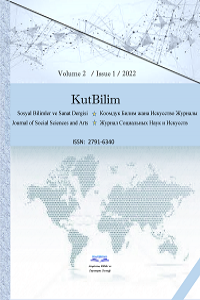Abstract
References
- Qoriah, Anirotul (2014) Be healthy through playing: The role of play on children. First International Seminar on Public Health and Education (ISPHE) Proceedings of the Conference: 159-163, Eds. Oktia Woro K.H, Tandiyo Rahayu, Soegiyanto K.S., Mungin Edy Wibowo, Doune MacDonald, Songpol Tornee & Maria Consorcia Lim Quizon. Semarang State University: Public Health Department Faculty of Sports Science.
Abstract
This small-scale research study probed into primary school teachers' attitudes on using games to teach Greek as a foreign/second language to bilingual students. The research issues under consideration, are teachers' perceptions of games and how they should be implemented, and teacher training in bilingual education. For the needs of this research, semi-structured interviews were conducted with teachers of public primary schools in Greece, who had bilingual students attending their classes and whose second language was Greek. The aforementioned teachers who participated in the research applied games in their teaching. The findings of the study revealed that all teachers have a positive attitude towards using games in their classrooms, such as, board games, cognitive games, theatrical games, and role-playing and that, most of the time, their role (meaning the teacher’s role) is that of a facilitator. Regarding their training in bilingual education, most evaluate it as incomplete in the sense that they emphasize upon the need for practical and experiential training. In conclusion, teachers believe that students prefer the application of games and play when learning a language compared to been taught the language through a traditional teaching method. Regarding the language lesson itself, teachers believe that games improve the learning skills of students who are learning Greek as a second/foreign language. However, given that this research was a small-scale research, it is important that we extend it to a larger and wider sample of teachers in order to draw safer conclusions.
References
- Qoriah, Anirotul (2014) Be healthy through playing: The role of play on children. First International Seminar on Public Health and Education (ISPHE) Proceedings of the Conference: 159-163, Eds. Oktia Woro K.H, Tandiyo Rahayu, Soegiyanto K.S., Mungin Edy Wibowo, Doune MacDonald, Songpol Tornee & Maria Consorcia Lim Quizon. Semarang State University: Public Health Department Faculty of Sports Science.
Details
| Primary Language | English |
|---|---|
| Subjects | Language Studies |
| Journal Section | Research Articles |
| Authors | |
| Publication Date | June 30, 2022 |
| Submission Date | May 25, 2022 |
| Published in Issue | Year 2022 Volume: 2 Issue: 1 |

